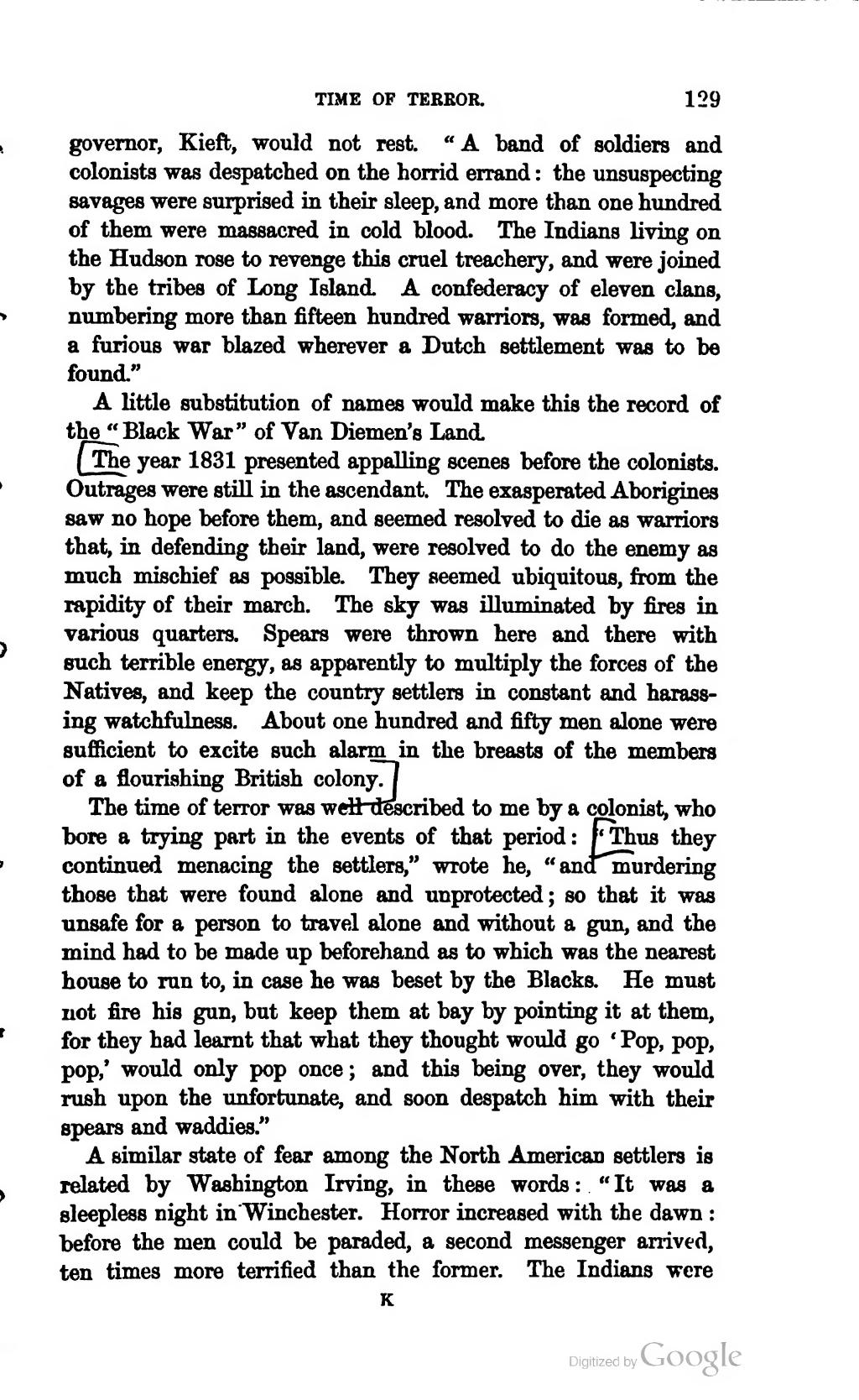governor, Kieft, would not rest. "A band of soldiers and colonists was despatched on the horrid errand: the unsuspecting savages were surprised in their sleep, and more than one hundred of them were massacred in cold blood. The Indians living on the Hudson rose to revenge this cruel treachery, and were joined by the tribes of Long Island. A confederacy of eleven clans, numbering more than fifteen hundred warriors, was formed, and a furious war blazed wherever a Dutch settlement was to be found."
A little substitution of names would make this the record of the "Black War" of Van Diemen's Land.
The year 1831 presented appalling scenes before the colonists. Outrages were still in the ascendant. The exasperated Aborigines saw no hope before them, and seemed resolved to die as warriors that, in defending their land, were resolved to do the enemy as much mischief as possible. They seemed ubiquitous, from the rapidity of their march. The sky was illuminated by fires in various quarters. Spears were thrown here and there with such terrible energy, as apparently to multiply the forces of the Natives, and keep the country settlers in constant and harassing watchfulness. About one hundred and fifty men alone were sufficient to excite such alarm in the breasts of the members of a flourishing British colony.
The time of terror was well described to me by a colonist, who bore a trying part in the events of that period: "Thus they continued menacing the settlers," wrote he, "and murdering those that were found alone and unprotected; so that it was unsafe for a person to travel alone and without a gun, and the mind had to be made up beforehand as to which was the nearest house to run to, in case he was beset by the Blacks. He must not fire his gun, but keep them at bay by pointing it at them, for they had learnt that what they thought would go 'Pop, pop, pop,' would only pop once; and this being over, they would rush upon the unfortunate, and soon despatch him with their spears and waddies."
A similar state of fear among the North American settlers is related by Washington Irving, in these words: "It was a sleepless night in Winchester. Horror increased with the dawn: before the men could be paraded, a second messenger arrived, ten times more terrified than the former. The Indians were
